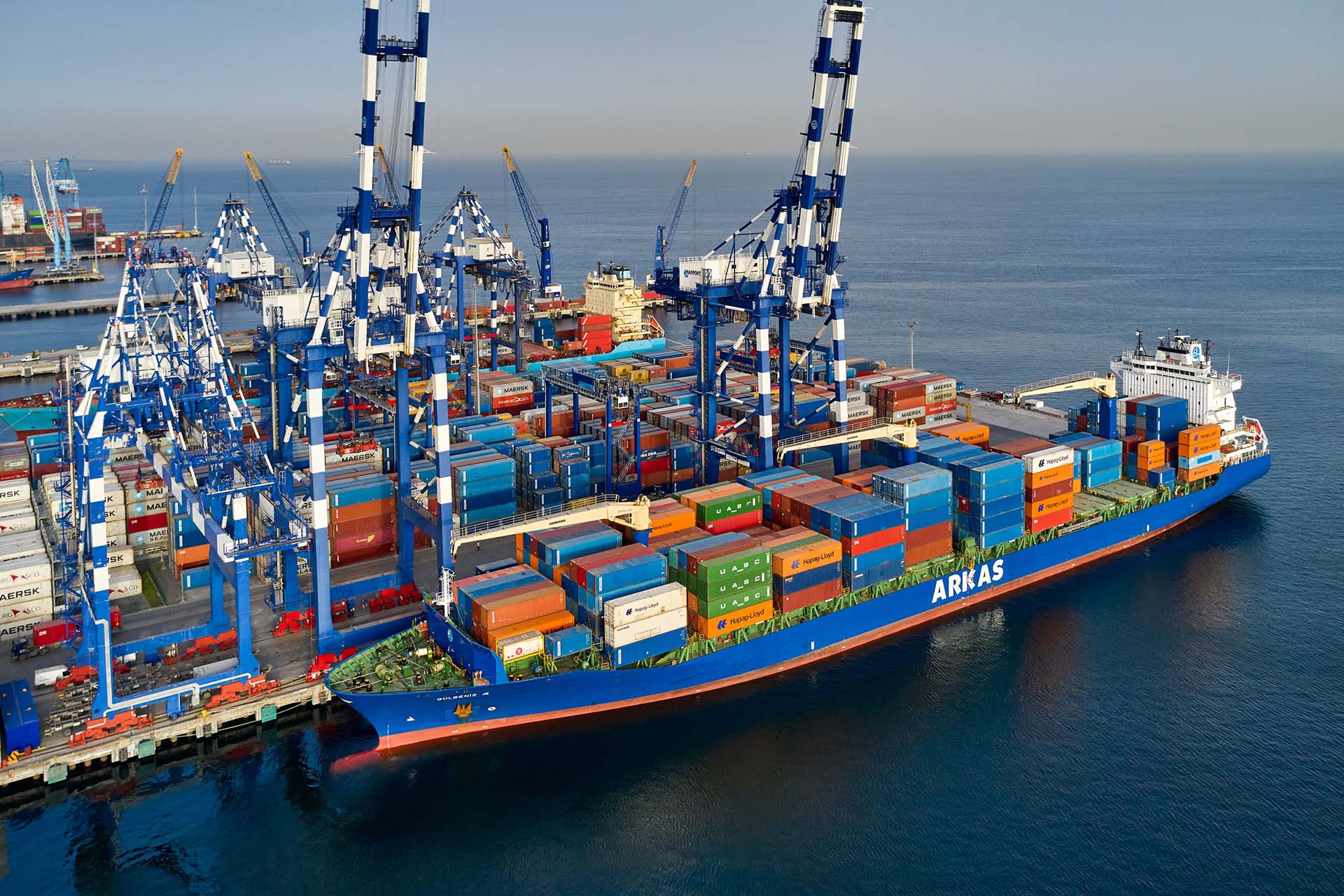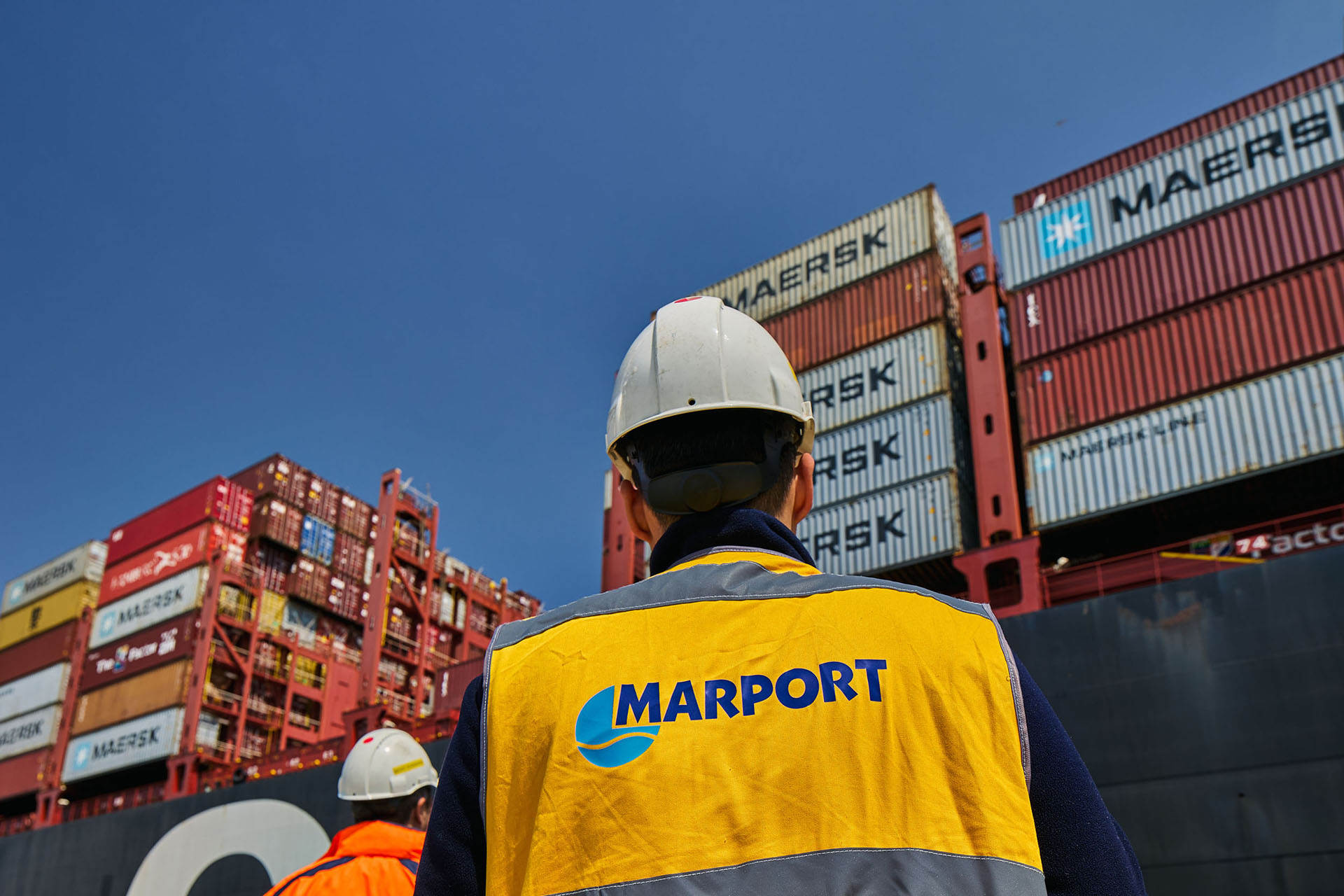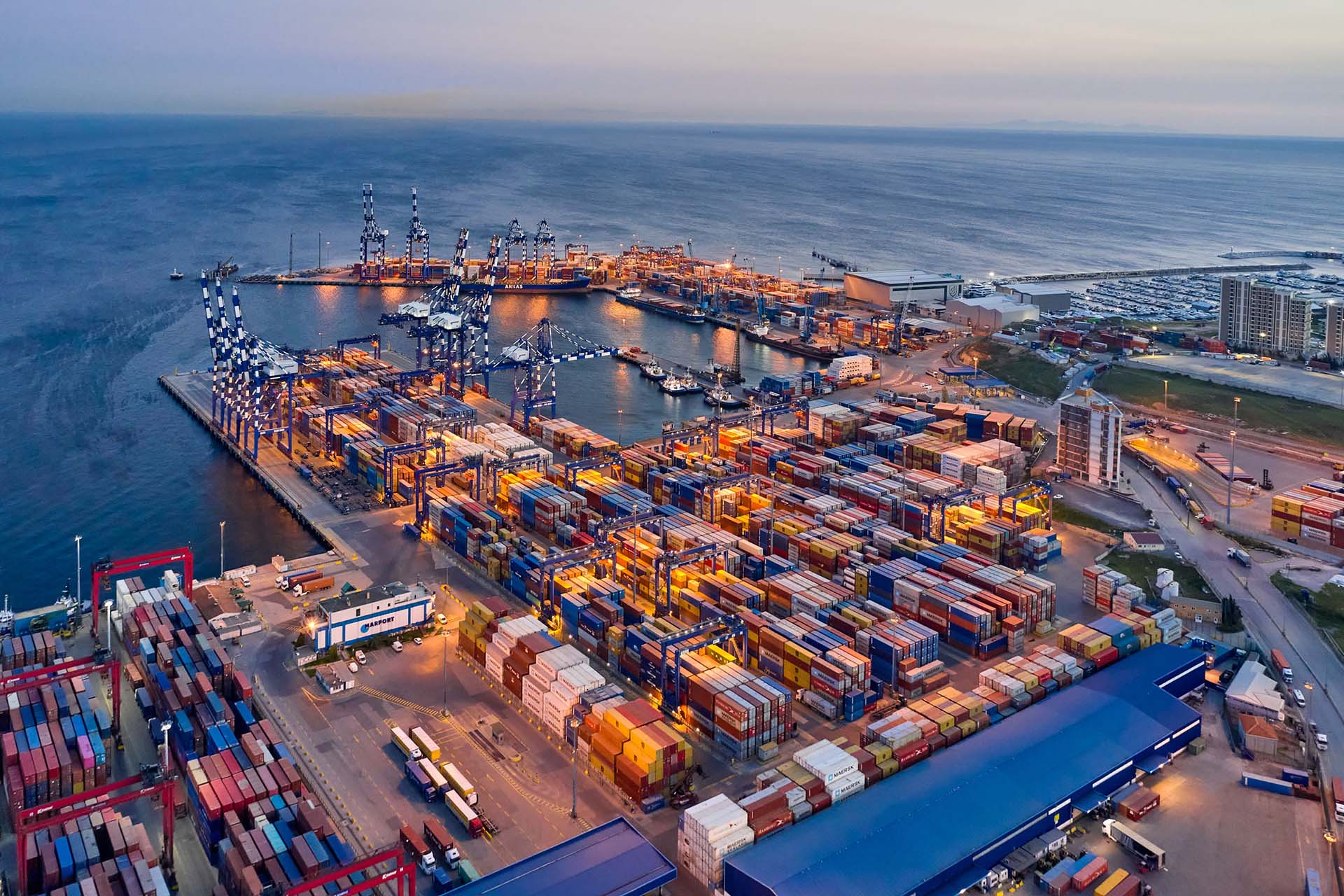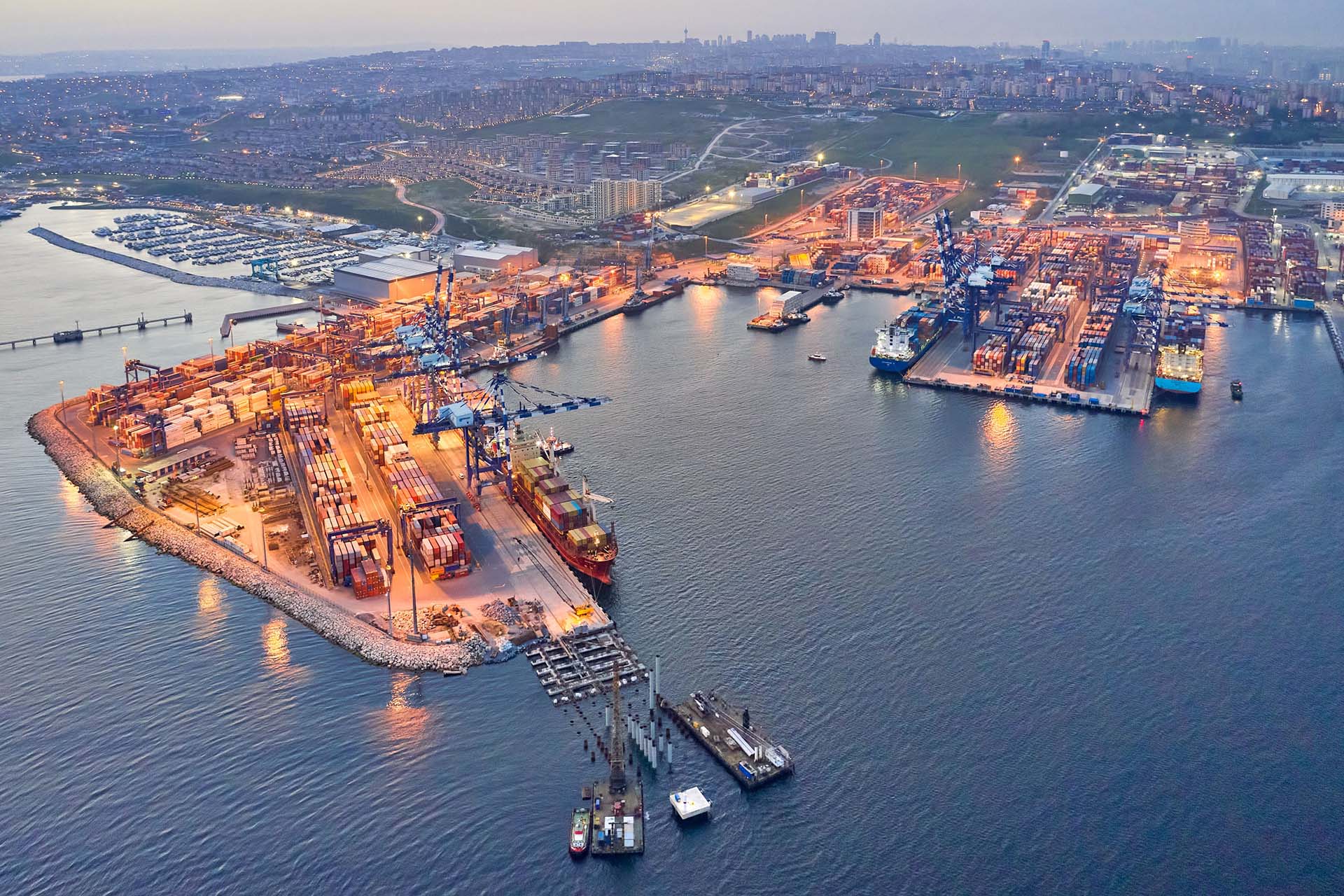At Marport, Turkey’s first green port, sustainable policies are implemented in many areas ranging from waste management to energy, and from carbon emissions to resource efficiency by adopting environmentalist approaches. The projects, developed by the management of Marport, a subsidiary of Arkas that provides port and terminal services, include measures to reduce the carbon footprint while raising awareness in order to leave a clean world to future generations.
Registered as Turkey’s first green port in 2015 within the scope of the “Green Port Project” that was organized by the Ministry of Transport and Infrastructure, Marport received the Zero Waste Certification in accordance with the Zero Waste Regulation put into effect in 2019. The Waste Management Plan has been designed for all types of waste generated within the borders of Marport. With the approval of this plan given by the Provincial Directorate for Environment, Urbanization and Climate Change, Marport keeps managing the process efficiently through waste management, procedures, instructions and forms that are implemented within the port area.
Sorting Waste at the Source
After all wastes are sorted at the source at Marport according to their types thanks to the Waste Management Plan, these wastes are given to companies licensed by the Ministry of Environment, Urbanization and Climate Change, thus ensuring their disposal and recycling in accordance with laws and regulations. Recyclable wastes are collected separately from other wastes and included in the recycling process by licensed companies. Hazardous wastes, on the other hand, are collected according to the legislation and stored temporarily, then they are sent for recycling and disposal through licensed companies. Lastly, wastes that are generated on vessels are collected by the Istanbul Metropolitan Municipality.

Treating Wastewater According to the Regulation
Domestic and industrial wastewater is treated within the Wastewater Treatment Plants established in Marport, complying with the standards required by regulations, and then released to the receiving environment. The periodic maintenance of treatment plants is carried out by professional teams and the effluent is monitored constantly. Thus, the effluent analysis is carried out periodically by accredited laboratories that are authorized by the ministry, and sustainability is ensured by returning the treated water to the receiving environment. With the investments made in the treatment plants between 2019 and 2021, the renewal and revision processes regarding the plants were completed, and the transition to Industry 4.0, a remote monitoring and control system, was achieved as well.
Natural Resources and Energy Efficiency
At Marport, where the consumption rate of natural resources is measured regularly, many efforts are made to reduce the consumption by focusing on relevant projects. In this context, the management of Marport has launched projects on the electricity and fuel usage with the aim to use energy more effectively and to reduce carbon emissions. Furthermore, they have developed the projects “Prime Route” and “Expert Decking” to make the field use and the equipment movements within the field more efficient. According to Marport officials this has resulted in an 11% increase in equipment efficiency, and a decrease in fuel consumption by the same rate.

Preferring LED luminaires instead of fluorescent bulbs for office lighting in order to be more energy efficient and to reduce consumption, the management of Marport uses transparent roof panels to benefit from daylight in areas such as workshops and warehouses. While the project to convert the lighting of construction equipment to LED luminaires has already started at Marport, feasibility studies for field lighting continue at full speed as well. On the other hand, the feasibility study for a solar power plant has been also completed at the port, where a rooftop panel is planned to be installed in the medium term.
Climate Change and Reducing Carbon Emissions
In line with its sustainable service approach, Marport strives to determine its role in climate change and to reduce carbon emissions. ISO 14064-1 is followed in order to standardize the activities carried out with this goal. Carbon emissions are monitored in five main groups which are direct emissions, energy-related emissions, transport emissions, emissions of purchased products/services, and emissions of end products/services. Marport Terminal Operators is also the first port that was certified by the Verifying Organization of the GHG Inventory Report in accordance with ISO 14064-1.

Combating Marine Pollution
Marport has prepared a Coastal Emergency Response Plan to combat marine pollution and signed a contract with a company that is authorized by the Ministry in order to respond to pollution quickly in an emergency. The company is also carrying out emergency drills and exercises to increase its response capability. Emergency response equipment is available 24/7 in designated areas within the port.
Acting with the awareness that port operators, one of the most important links of the supply chain in world trade, have responsibilities in environmental issues such as waste prevention, separation and reduction of emissions, the management of Marport will keep creating and developing projects to leave a clean future for the next generations.


